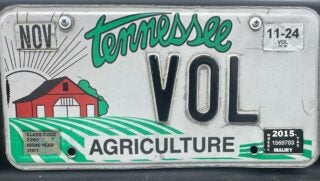“Are you organic?” is a recurring question at the farmstand. It’s also a teachable moment for those of us in the retail trenches.
Conventional wisdom goes something like this: organic = natural = good, conventional = synthetic = bad. The equivalencies are simplistic, but easily digestible soundbites.
When framing the organic vs. conventional debate, I’m reminded of the 16-bit console wars. Remember the Super Nintendo and Sega Genesis? Energized by their hipster mascot, Sonic, Sega took the offensive, directing pot shots at Nintendo. Their business model mirrored the iconic hedgehog, oozing ‘tude. Nintendo had (yawn) Mario. Sega also hyped an exclusive feature called “blast processing.” One problem: It was a marketing gimmick invented by suits to sell consoles. Despite that, the campaign was largely a success.
Similarly, the organic industry has done a masterful job of positioning itself as the new kid on the block, with value added exclusives that benefit the environment and consumer alike. And this fiction is legitimized by the USDA’s National Organic Program (NOP). That’s the genius — it rides on the coattails of implied benefits. Consumers put their faith in that label, assuming it has some actual heft behind it. In reality, it’s light on ethics and heavy on opportunism.
Unfair you say! Hear me out.
So what makes it so appealing? What are these bankable exclusives that the crotchety old-timers don’t understand? Why is the public willing to shell out major coin in the form of a “Gwyneth Paltrow tax” (said of a trendy snake oil product with shoddy credentials) for their piece of the organic pie?
Exclusive #1: Pesticide-Free. This one frequently makes the rounds. It’s also untrue. Copper sulfate, which accumulates in the environment, is just one of many embarrassing allowances in the NOP. All right, how about less pesticides? Less conventional pesticide residues for sure, since they’re forbidden (see the EWG’s Dirty Dozen List), but the EWG doesn’t test for organic residues. How convenient.
Exclusive #2: More Nutritious and Wholesome. There’s this caricature of the conventional farmer laughing maniacally as we sell our pesticide laden produce to the public — and then whip out the embossed silverware to eat our “fancy feast” caliber organic food. In reality, we have full confidence in the growing techniques, quality, and safety of our product — we proudly eat what we grow. Too bad mothers feel guilt tripped into organic and would rather skip the produce aisle if they can’t afford the (perceived) creme de la creme. That’s a tragedy.
Exclusive #3: More Eco-Friendly. Conventional farmers practice crop rotation and cover cropping. We also spread manure to enrich our soil with organic matter (you can appreciate the irony). Organic growers have a heck of time managing weeds without tillage, which causes erosion. Conventional farmers can spray and be set with a no-till system — using softer materials and leaving less active ingredient in the environment.
Exclusive #4: Focuses on Social Justice. The organic industry has successfully lobbied for exemptions from laws restricting backbreaking weeding — because they don’t have many other options. Famed civil rights advocate Caesar Chavez is undoubtedly rolling in his grave.
Exclusive #5: The Antidote to Rampant Corporatism. No Factory Farms. The Savior of the Local Family Farm. What makes a factory farm? There’s no real prescriptions in the NOP. Acreage doesn’t matter, nor do gross receipts. Many corporate entities have their own organic brands to obfuscate corporate ties. The Organic Center was funded through industry dollars to generate favorable research. No shills here.
Exclusive #6: All-Natural. No Synthetics or GMOs! There are quite a few unnatural items on the NOP list. They take liberties when granting exemptions. Don’t forget plant varieties generated through mutation breeding, where seeds are nuked with radiation — Golden Promise Barley comes to mind. And GMOs that produce biodegradable protein pesticides that only target munching pests are verboten. Makes sense (sarcasm).
Exclusive #7: Takes the Moral High Ground On Animal Welfare. “Free-range” is still a bit nebulous, but wouldn’t an animal prefer a climate controlled, indoor environment? If an animal is sick, it shouldn’t be treated with antibiotics?
Fanboys and fangirls literally fetishize the organic industry. Yet former Ag Secretary Dan Glickman said it best when he wryly noted that organics is a production standard, not a health or safety standard. So consumers are basically paying for a loose philosophy that’s more than willing to look the other way when it’s expedient [cha-ching]. What are consumers paying for? Where are these oft harped exclusives?
Some say that we should all sing kumbaya and coexist. We’re “all in it together” after all. The problem is that the very existence of organics implicitly slanders my farm, sweat, and heritage. I’d love to sell produce at a higher margin, but I’m not going to hustle you to do it. Despite being marketed as a near existential experience, organics is guided by a false prophet. It’s time to stop the fleecing of consumers for what amounts to a faith based dietary restriction — it seems like the organic televangelists are making up the rules as they go.
Tim Durham’s family operates Deer Run Farm — a truck (vegetable) farm on Long Island, New York. As an agvocate, he counters heated rhetoric with sensible facts. Tim has a degree in plant medicine and is an Assistant Professor at Ferrum College in Virginia.



